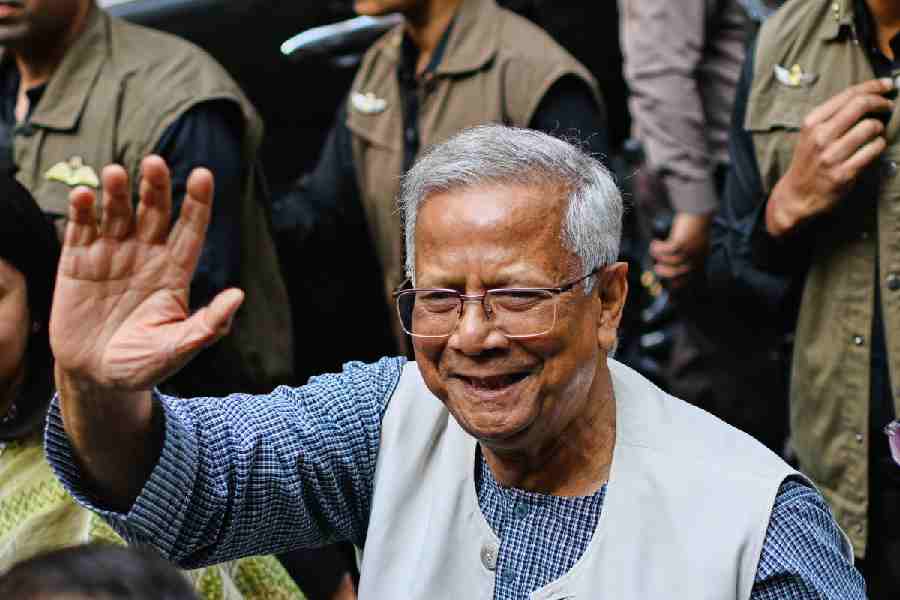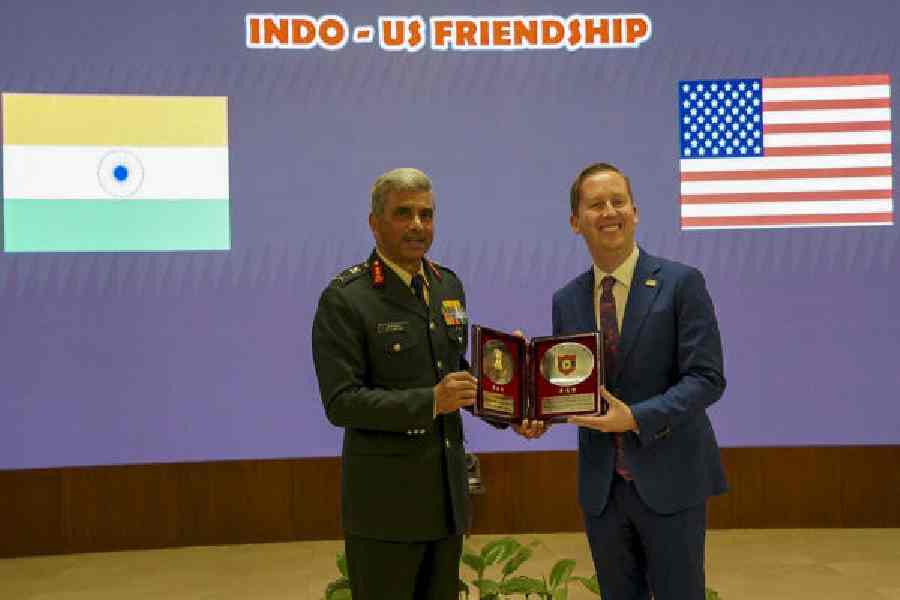 |
| Students of Kairali School in Ranchi present a dance item during the Onam festival. Picture by Prashant Mitra |
Ranchi, Sept. 1: The fragrance of steaming rice on freshly-cut banana leaves, tinkling toes of Malayalee women matching steps with traditional tunes and drums beating in the horizon welcomed King Bali on his annual visit.
The Malayalee families living in the capital wistfully recalled the golden rice-fields of their home state, as they celebrated their harvest festival Onam today. The carnival is held in the month of “Golden Chingen” of the Malayalee calender, which falls between August and September every year. About 2,000 Keralites in Ranchi have been celebrating the festival since 1965.
Onam literally means “prosperity” and tradition has it that the legendary king Bali pays a visit to his kingdom during Onam every year to survey the prosperity of his land.
Explaining the mythological backdrop, Ranchi Malayalee Association (RMA) member R.A. Pillai said: “During his Vaman (dwarf) incarnation, Lord Vishnu had granted a wish to Bali that he would be able to visit his kingdom every year during the harvesting season to see the prosperity of his people.”
“So, we believe that king Bali, during whose reign citizens lived in absolute peace and prosperity, visits his people every year on the day of Onam. He looks after our well-being and through the celebrations ensures that we retain the old values. His reign was marked by the absence of any discrimination,” he added.
The Malayalee association members said Bali believed that no discrimination should be made on the basis of caste, creed, community or race while governing the people. The demon king always made sure that a deserving person was not deprived of his position if he happened to hail from a lower caste or different community.
Another RMA member Sundaram said: “People were free from the shackles of caste, creed and race in Bali’s kingdom. During his rule, people of Kerala lived in perfect harmony. One’s ability and not caste or creed was the criteria for jobs then.”
“We dream of living in such a utopian society again. To make sure that we imbibe Bali’s ideals, a community feast is thrown during Onam celebration where a pure vegetarian traditional lunch is served on banana leaves to all willing to join us,” he added. RMA secretary K. Sukumaran said: “The message of Onam is particularly relevant in today’s age of frequent communal, lingual and racial strife. It is only ironical that we are giving in to our base instincts with such rapid advancement in education. What is the use of all this knowledge if we still behave like savages?” Stressing the need to keep the Onam tradition alive, RMA general secretary Sudhakaran Pillai said: “Those who forget their history and tradition, lose their identity. Identity is associated with cultural values, which sustain people at times of adversity.”










